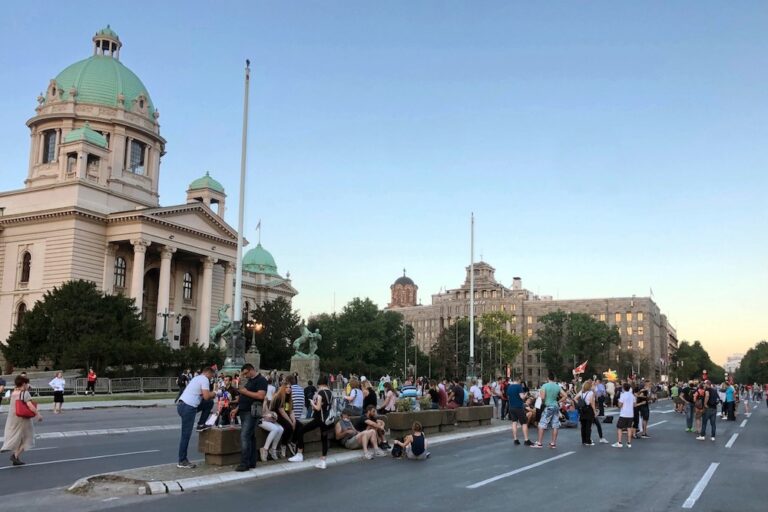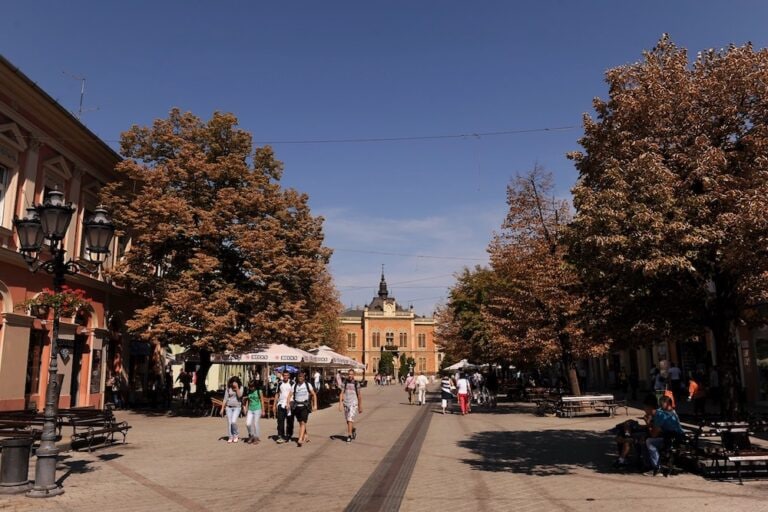(RSF/IFEX) – In a 10 October 2001 letter to Yugoslavian Minister of Telecommunications Marija Raseta-Vukosavljevic, RSF expressed its surprise following the Yugoslav Ministry of Telecommunications’ decision to ban Radio-Television Nisava’s (RTV Nisava) programmes because it does not have a broadcasting licence. RTV Nisava is the Roma community’s station in Nis. “This brutal ban is all […]
(RSF/IFEX) – In a 10 October 2001 letter to Yugoslavian Minister of Telecommunications Marija Raseta-Vukosavljevic, RSF expressed its surprise following the Yugoslav Ministry of Telecommunications’ decision to ban Radio-Television Nisava’s (RTV Nisava) programmes because it does not have a broadcasting licence. RTV Nisava is the Roma community’s station in Nis.
“This brutal ban is all the more surprising in that the frequency allocation system is currently being reviewed and its rules are not clearly known at present,” stated Robert Ménard, the organisation’s secretary-general. “We ask the Ministry of Telecommunications to reconsider this decision,” added Ménard.
According to information collected by RSF, on 20 September, the Yugoslav police reportedly blocked access to RTV Nisava’s studios and sealed them because the station did not have a licence to use frequencies and broadcast its programmes. On 5 October, the Ministry of Telecommunications reportedly permanently banned the station’s programming.
On 5 October, RTV Nisava editor-in-chief Boban Nikolic said that the “ban represents the choking of the right to information and integrity, and that of the Roma community to integrate” in Yugoslavia.


